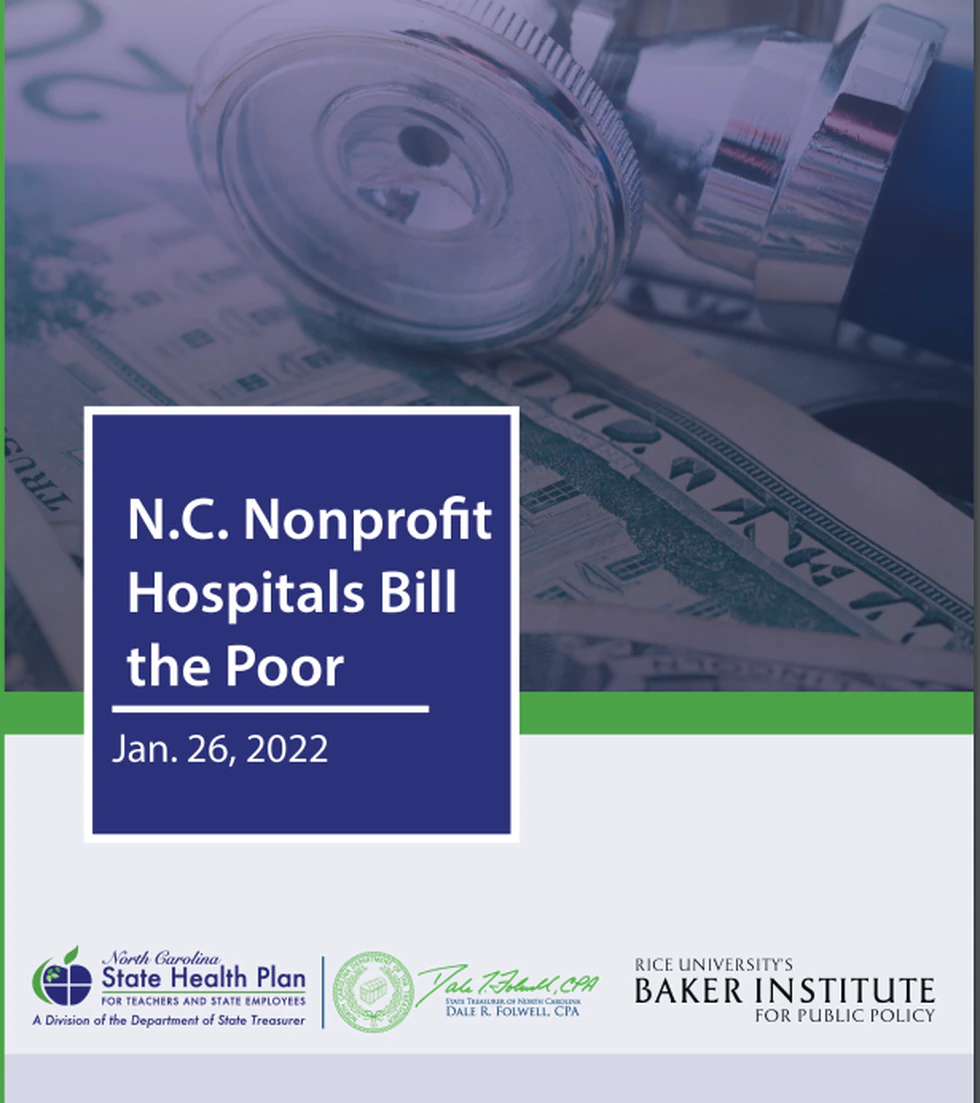Report says Nonprofit hospitals aren't providing enough charity care, state officials want to change that – WECT

WILMINGTON, N.C. (WECT) – Going to the hospital is never fun, especially when you get hit with a major bill. For those with good health insurance, hospital stays can be a bit more affordable, but when it comes to lower-income patients, hospital bills themselves can be unmanageable.
In fact, according to a new report, one in five families has medical debt in collections — for low-income families that number raises to 50%.
Nonprofit hospitals get the benefit of tax breaks by offering charity care programs, but Folwell says in North Carolina, those hospitals are not living up to their end of the bargain.
âThese hospitals receive lucrative tax exemptions to care for the poor, but the majority of nonprofit hospitals failed to provide enough charity care to equal tax breaks valued at more than $1.8 billion in 2020,â according to a report released Wednesday.
Thatâs why Folwell, along with lawmakers are pushing for a change.
âNorth Carolinaâs nonprofit hospitals have billed millions of dollars to poor patients who should have qualified for free or discounted charity care. State Treasurer Dale R. Folwell, C.P.A., is joining with state lawmakers to advocate for greater accountability to ensure hospitals are providing sufficient charity care instead of billing low-income patients,â according to Folwell.
It seems that this problem is ongoing, and is affecting a large number of patients across the state.
âIn 2020, nonprofit hospitals estimated that an average 31% to 48% of bad debt could represent billings to patients who are actually eligible for charity care,â according to the report.
Itâs something that Folwell compares to a cartel.
âWe have seen and are seeing the cartelization of healthcare thatâs a very strong word except when you go to the Websterâs dictionary a cartel is defined as an association which is formed to restrict competition and raise prices,â he said.
And if you wonder if nonprofit hospitals are operating at a loss, or not making any money, that couldnât be further from the truth.
âNonprofit hospitals are often more profitable than for-profits in North Carolina. All the top 10 most profitable hospitals were nonprofits in fiscal year 2019. For-profit hospitals accounted for only three of the top 40 most profitable hospitals in that same fiscal year,â according to the report.
New laws and standards needed
Itâs not an easy problem to address since there is really no oversight board or agency tasked with keeping nonprofit hospitals honest, and records are often not made available to the public
âIn North Carolina, there is no public agency or official who actively enforces how nonprofit hospitals honor their charitable mission. The current system, therefore, enables some hospitals to collect the tax exemption without providing sufficient charity care,â according to the report. âPolicymakers should consider requiring a benchmark level of charity care spending from profitable hospitals, as well as limiting or even rescinding the nonprofit status of hospitals with insufficient community benefits.â
These tax breaks that hospitals are given are worth millions and they do come out of the average taxpayerâs pocket, yet, another investigation by Johns Hopkins Bloomberg School of Public Health proved most hospitals are not able to justify their tax exemptions with charity care.
âThough few federal tax filings were available, North Carolinaâs nonprofit hospitals have reported charging as much as an average 48% of their bad debt to poor patients eligible for charity care in fiscal year 2020. Some nonprofit hospitals reported billing more than 60% â and even 80% â of their bad debt to disadvantaged patients likely eligible for charity care in fiscal year 2019 and 2020,â according to the report.
âHospitals are hiding the costs of healthcare even when the former president issued an executive order and the current president, he actually strengthened this executive order weâre still facing this situation,â Folwell said.
When a patient is unable to pay for their medical care, hospitals should be looking to see if they qualify for charity care, however, many hospitals are taking dramatic actions against those who canât pay. Julie Havlak of the N.C. State Health Plan said the numbers the report found are staggering and can have severe impacts on patients.
âUnless a patient qualifies for charity care what happens is that hospitals will attempt to collect on their bills, sometimes that can be through damaging credit scores, even suing patients or encouraging them to open up medical credit cards that can charge high-interest rates up to 18% or higherâ
Copyright 2022 WECT. All rights reserved.




